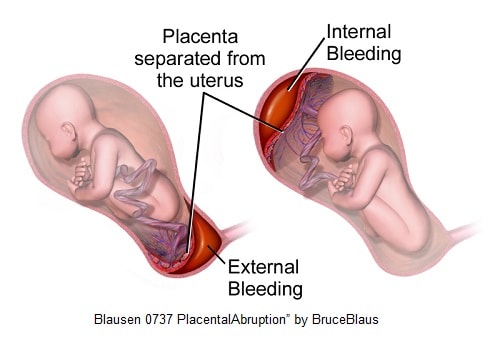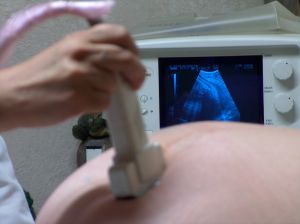If you are pregnant, there is no doubt that you have been told to watch the foods that you are eating, do plenty of exercise, get lots of rest, and do not eat meals for two. This should not be taken lightly as it’s to ensure that you maintain a good weight throughout pregnancy. But, how much weight will you gain during pregnancy?
It depends as there is no one-size fits all scenarios for weight gain in pregnancy. Weight gain will depend on various factors such as your weight before conception and what is the appropriate weight for your height. You are likely to weigh more if you are pregnant with twins or triplets. Even though most medical doctors focus on preventing women from having underweight babies, more evidence is showing that there is no need to eat for two if you want to maintain the correct weight during pregnancy. The maximum weight gain recommended is twenty-five pounds for obese women, thirty-five pounds for those who fall in the normal range, and forty pounds for underweight women.
If you fall in the underweight category during pregnancy, you will need to increase it by about twenty-five percent. On the other hand, you should reduce your weight by the same amount if you are overweight.
Having an excessive amount of weight during pregnancy could lead to long-term risk of diseases such as allergies, cancer, and asthma in the child later on in life. Substantial weight gain could also give rise to gestational diabetes, the need for a birth through cesarean, and preeclampsia which is a dangerous condition that involves high blood pressure. Gaining excess weight is not just bad for the expecting mother, but also the unborn fetus.
Some researchers discovered that a pregnant woman is more likely to give birth to a baby who weighs at least 8.8 pounds or 4 kilograms if she gains over 53 pounds or 24 kilograms during pregnancy.
You could weigh about 27.6 pounds or 12.5 kilograms more than before by the end of your pregnancy. Of course, this amount will vary from person to person, so it is best to use a pregnancy weight gain calculator or contact your healthcare practitioner to get a figure that is more personal based on your pre-pregnancy weight and height.
When you are close to your due date, your baby, the amniotic fluid and the placenta will contribute to over one third of the extra body weight. The following are some averages that could help you even though every baby and woman is different:
- A baby will weigh about 7.3 pounds or 3.3 kilograms at birth.
- The amniotic fluid cushions and supports the baby and it will weigh 1.8 pounds or 0.8kg.
- The placenta provides nourishment to the baby and it will weigh 1.5 pounds or 0.7 kilograms.
The changes which your body goes through during pregnancy will make up for the remaining two thirds of additional weight. On average, you could store about 8.8 pounds or 4 kilograms of fat to give energy during the breastfeeding period; your breasts will weigh an additional 0.9 pounds or 0.4 kilograms; the blood volume and extra body fluid combined will weigh 5.2 pounds or 2.4 kilograms, and the womb’s muscle layer weighs 2 pounds or 0.9 kilograms extra.
What You Should Do to Avoid Excess Weight
It is never good to feel pressured to lose weight during pregnancy so you should not go on a diet. Instead, you should try to maintain a healthy and balanced diet. It’s recommended that women should have around 2,000 calories daily. You won’t need more than this until you reach the last three months when you can have 200 extra calories daily.
Rather than eating cakes, biscuits, ice cream, and sweets which are high in sugar and saturated fat, you should have fresh fruits, low-fat cheese, wholegrain crackers, yogurt, and dried fruits. Vegetables and fruits should be consumed in five portions minimum daily. Avoid large meals and have smaller portion sizes.
Drink diet beverages and water instead of the fizzy drinks which are full of sugar. These changes can really make a difference in the amount of weight that you gain.
Another way to control your body weight is to keep active and exercise during pregnancy. Besides, when you are active you are likely to have a straightforward period of labor and birth. You could sign up for and join pregnancy exercise classes, such as Pilates or antenatal yoga. In general, you should try to do extra movements each day. As an example, you could use the stairs and not the lift or take short walks.
All in all, it is healthy and natural for women to gain weight in pregnancy as the body has to change in order to help the baby grow. To be on the safe side, you should ask your doctor or midwife for recommendations about staying active and eating healthy.



